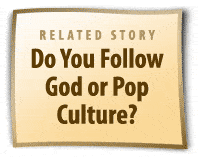 y skin feels baked from the hot, dry summer day. The sun just went down and the bands are still playing. You can hear the hard rock music trailing along the well-worn rocky paths, echoing through the woods.
y skin feels baked from the hot, dry summer day. The sun just went down and the bands are still playing. You can hear the hard rock music trailing along the well-worn rocky paths, echoing through the woods.
More than 100 “underground punk” groups from all over the world are performing all night and day this weekend here in eastern Canada in 1997.
I’m walking by myself now, in shorts and a T-shirt. I’m nearing a clearing where the stage is. It’s getting louder and louder. The fast steady beat is pulsing through the air. Impossible to ignore, the sounds seem to control the way I walk, act, even the way I think.
My heart starts to race when I see the side of the stage. An ambulance behind me somehow made it through the rough trail and is bouncing back to the main road. Someone must have overdosed on drugs, I speculate. A bunch of partygoers are jumping on and off the vehicle, laughing as it races away.
It’s a dangerous scene to be a part of, but at least it repels the popular culture outside, I thought. In fact, most of the people at this party came to escape the mainstream. I was one of them. Back then I didn’t truly understand what it meant to be set apart from pop culture.
 Outcast
OutcastI never fit in with city kids. I was 10 when my family moved to the Seattle, Washington, suburbs. I came to enjoy pop music, clothing, and entertainment, but I didn’t know how to act cool around people. I got in a lot of fights, and got bad grades. I even got arrested a few times as a teenager.
I moved to Canada for a few years to escape legal problems in Seattle. I thought the move would also distance me from that society. I hoped to start over and finally fit into the popular culture. I planned to have a lot of friends.
But even in Canada I realized I’d never be able to identify with the majority. The community I lived in seemed dishonest, cruel, and fake, just like the place I moved from. I sided with kids from broken homes and those with similar feelings about society. We justified our rebellion by labeling the majority of North Americans as morally defective. And though many in our society called themselves Christians, we had proof from history and the injustices all around us that they were hypocrites.
As I met more people who thought the way I did about popular culture, I found clothing, music, and entertainment that countered the mainstream. Most of my friends were punkers because their culture seemed the best example of my ideal culture. But I still felt . . . restless.
I was amazed to discover, upon moving back to Seattle, that punk rock had become popular there. I saw clean-cut kids with mohawks, leather jackets, and studded bracelets wandering suburban streets, staring blankly at passersby. I couldn’t believe it. It disgusted me that the underground culture I’d been a part of had become exploited and transformed by pop culture.
I found myself alone in the world again. I had no group to belong to. In my sadness I started praying to God. I always knew He was there, but had never committed myself to Him. I finally put myself in the care of Christ. When I gave my heart to Jesus, I became part of the body of Christ—part of the heavenly culture.
First Church
The first Seventh-day Adventist church I attended had a “traditional” type of service with mostly hymn music. For me it was a sacred place—an oasis amid the popular society outside its doors. But I had to laugh when, during the closing song one Sabbath, a drunken middle-aged man with a mohawk wandered into the building. He strutted to the end of the center aisle, to the front of the stage where the pastor and elders stood, kneeled down and rested the side of his head on the Communion table. Afterward, he gave as many hugs as he could in the foyer.
 As I attended other Adventist church services I began to notice something different. The music sounded familiar. It was pop music—the kind of music that brought back disturbing memories. I was absolutely shocked. Then I gradually noticed that more people in church dressed and posed like actors in a soap opera. They looked like the preppy city kids that ostracized me back in school.
As I attended other Adventist church services I began to notice something different. The music sounded familiar. It was pop music—the kind of music that brought back disturbing memories. I was absolutely shocked. Then I gradually noticed that more people in church dressed and posed like actors in a soap opera. They looked like the preppy city kids that ostracized me back in school.
It didn’t take me long to discover the “controversy” in our church called “liberal versus conservative.” I decided these groups were two popular cultures of their own that no sane person should be a part of. But it scared me: no matter where I turned, I couldn’t escape pop culture.
Set Apart
What exactly is pop culture? You can easily point to things such as TV, music, and dress for definitions, but what do all these things have in common? What is it about the way people look, act, and think that makes them part of a mass majority? I believe pop culture is an attempt by humanity to unite humankind by its own works.
Since Adam and Eve fell, humans have tried to reunite themselves to make up for their broken relationship with God. Remember the Bible story of the Tower of Babel? Or how Israel cried for a king instead of letting God be their leader? What about when the early Christian church joined popular paganism, resulting in an all-powerful but corrupt medieval church?
But God has His own way of uniting humankind—and uniting people with Himself. It’s called the gospel. Unfortunately, not every person will accept the fact that Christ experienced death to give us eternal life in unity with Him and each other. Humanity has been and always will be divided between those who truly believe and accept Christ and those who don’t.
When explaining to the disciples their work ahead, Jesus said: “Do not think that I came to bring peace on the earth; I did not come to bring peace, but a sword. . . . And a man’s enemies will be the members of his household” (Matt. 10:34-36, NASB).*
Though Jesus wants all human beings to embrace the good news, not all of us will. We are blessed with our own free wills, but we’re desperately hard-hearted. For those who are willing to fight against self and grab on to Jesus, for those willing to go “counterculture,” God has a message about how to live: “Thus you are to be holy to Me, for I the Lord am holy; and I have set you apart from the peoples to be Mine” (Lev. 20:26, NASB).
________
*Scripture quotations marked NASB are from the New American Standard Bible, copyright © 1960, 1962, 1963, 1968, 1971, 1972, 1973, 1975, 1977, 1995 by The Lockman Foundation. Used by permission.
_____________
A. J. Church writes from Lowell, Oregon. a version of this article originally appeared online for Insight magazine.

 y skin feels baked from the hot, dry summer day. The sun just went down and the bands are still playing. You can hear the hard rock music trailing along the well-worn rocky paths, echoing through the woods.
y skin feels baked from the hot, dry summer day. The sun just went down and the bands are still playing. You can hear the hard rock music trailing along the well-worn rocky paths, echoing through the woods.  As I attended other Adventist church services I began to notice something different. The music sounded familiar. It was pop music—the kind of music that brought back disturbing memories. I was absolutely shocked. Then I gradually noticed that more people in church dressed and posed like actors in a soap opera. They looked like the preppy city kids that ostracized me back in school.
As I attended other Adventist church services I began to notice something different. The music sounded familiar. It was pop music—the kind of music that brought back disturbing memories. I was absolutely shocked. Then I gradually noticed that more people in church dressed and posed like actors in a soap opera. They looked like the preppy city kids that ostracized me back in school.